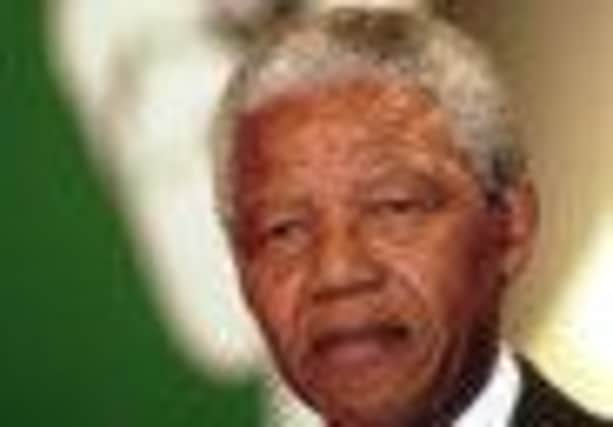Mandela’s role in deal that brought Megrahi before Scots court


It was Mr Mandela’s intervention in the diplomatic deadlock that had developed over attempts to bring Megrahi to justice that was to prove crucial.
Megrahi had been indicted in 1991, less than three years after Pan Am 103 blew up over Lockerbie, following a massive investigation by UK and US police forces. Accused along with Al Amin Khalifa Fhimah, the pair spent years on the FBI’s “most wanted” list.
Advertisement
Hide AdAdvertisement
Hide AdThe Libyans adamantly refused to hand over Megrahi. But throughout the 1990s, Muammar Gaddafi’s regime conducted tense and secret negotiations with the West. Libya wanted to break out of the isolation imposed by sanctions and exploit to the full its immense reserves of oil and natural gas.
The former South African president led negotiations in 1999 at a time when Lybia was refusing to extradite Megrahi and his co-accused.
The UN imposed eight years of sanctions against Col Gadaffi’s regime, until a Mandela- inspired compromise saw the suspects’ surrender and the trial by Scottish judges in the Netherlands.
Gaddafi gradually realised that a full rapprochement with the West was essential if Libya was to avoid long-term stagnation and economic decline that would eventually threaten his grip on power. Handing over Megrahi was a necessary price to be paid.
Eventually, after some intense negotiations from Mr Mandela the Libyan authorities agreed to give up the suspects. In 1999 Megrahi was duly transferred to stand trial. As a face-saving formula for Gaddafi, the Scottish court was located inside a military base in the Netherlands, allowing the Libyans to say that Megrahi had been handed over to a neutral country.
The trial lasted 85 days. None of the witnesses connected the suspects directly to the bomb. But one, Tony Gauci, the Maltese shopkeeper who sold the clothing that forensic experts had linked to the bomb, identified Megrahi as the buyer, although Gauci seemed doubtful and had picked others in photo displays.
On 31 January, 2001, the three-judge court found Megrahi guilty but acquitted Fhimah.
The court called the case circumstantial, the evidence incomplete and some witnesses unreliable, but concluded that “there is nothing in the evidence which leaves us with any reasonable doubt as to the guilt” of Megrahi.
Advertisement
Hide AdAdvertisement
Hide AdSome years later, Mr Mandela made his last visit to Scotland and took the time to visit Megrahi in Barlinnie.
He called for Megrahi to be moved to a Muslim country to avoid harassment from other prisoners.